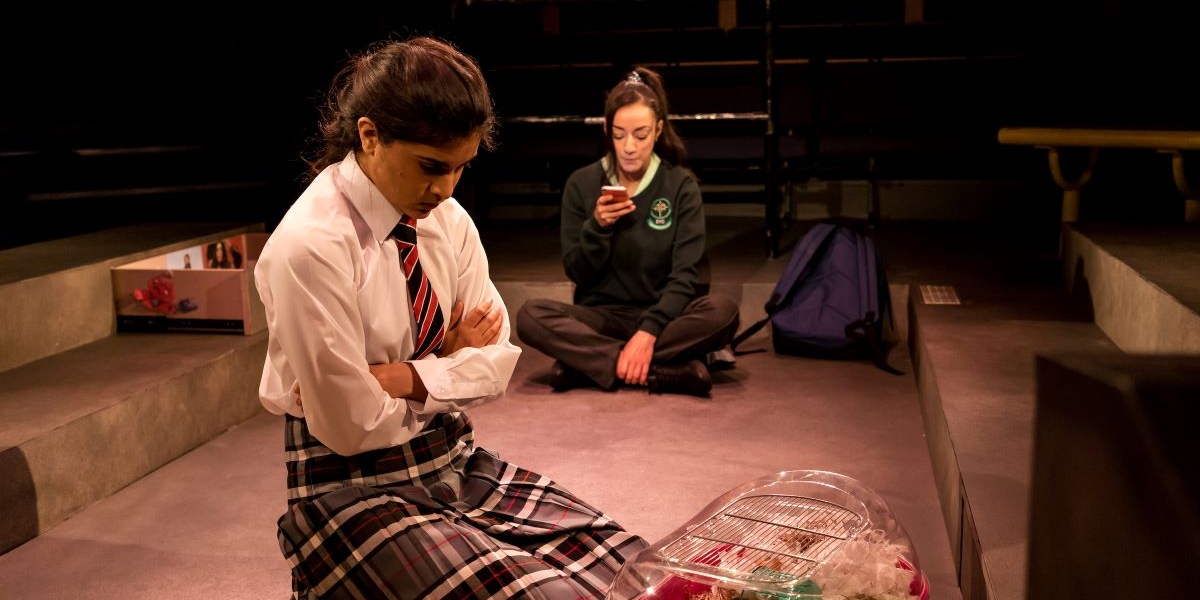Set against the background of non-descript urban architecture and the quaint and empty Ofsted promise of a school being ‘outstanding in all areas’, is Two Billion Beats.
A two-handed coming of age story set in the round, about many things, but most notably accepting the nuanced flaws of individuals. Written by young award-winning playwright Sonali Bhattacharyya, the play maintains her focus on illuminating the stories of the marginalised and democratising dramatization. It delves into numerous topical and ethical questions of morality and our selection of role models. It aims to prescribe and confront too many contemporary societal issues, sometimes without forming the full necessary space for their exploration.
The play features frequent cutaways and introspective soliloquies delivered by its lead, Asha (Shala Nyx). These are often followed by the loudspeakers serenading us with the dulcet tones of B R Ambedkar and Sylvia Pankhurst. In contrast Bettina (Tanvi Virmani), delivers a refreshing comedic reprieve with a delicate touch. Both actors bring strong, lively performances and successfully convey the source material engagingly.
The play confronts the idea of pacifism and peaceful resistance, referencing Ghandi, but also contextualising his pitfalls as a man. Ghandi’s idea of peaceful resistance is touched upon in a key moment of the play in which Bettina is advised by her sister (Asha), not to use violence to stop bullying but rather embrace victimhood. A course of action which does not necessarily fit with the characterisation of Asha to this point, nor the morals the play espouses and can be viewed more as an instrument of plot development. Nevertheless, the play evokes robust nostalgia of youth through its display of sibling interaction and bickering. In one Proustian moment Bettina is eating quavers, and offers them to her sister, the pungent smell of the fried snack fills the theatre, and with-it memories of school playgrounds.
Overall, the play focuses on contemporarily important issues of racism, bulling, identity and morality, though in the conflict of the play itself, perhaps the stakes could be higher and some of these conflicts could be explored further.

